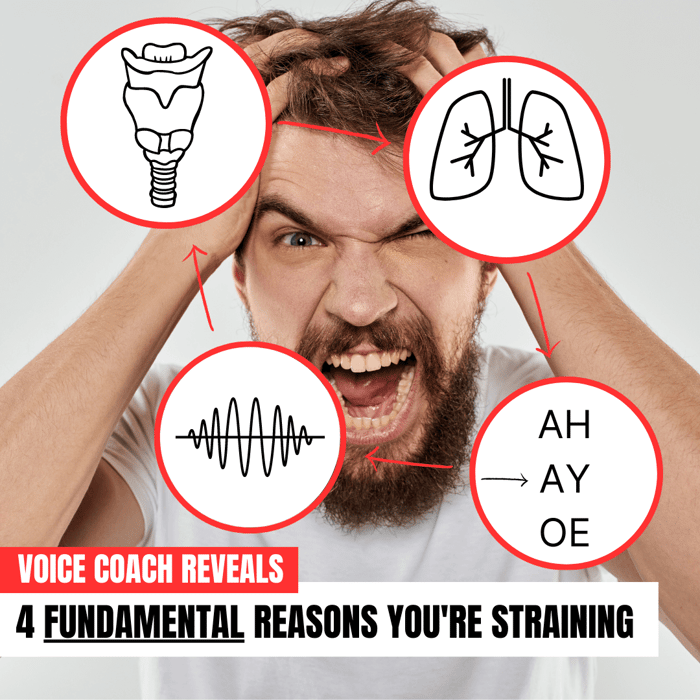So you want to learn to sing high notes - powerful, beautiful, gnarly high notes that make people's jaws drop as your high range flies through the roof.
I hear you - it was always my dream to sing high notes.
... But my first singing teacher actually told me that my voice was too low to ever sing higher notes than the "Johnny Cash Range" as she would often say.
She was almost PROUD to tell me this 'fact' - while simultaneously smashing my dreams in a millisecond.
I'd like to think I've proved her horribly wrong.
It might have taken me 20 years, but a basic warmup for me takes me to G5 consistently every single day - we're talking that CRAZY high Chris Cornell range from his soundgarden "peak" days.
And that's as a guy with a naturally lower voice type.
I'm singing higher notes than I even knew was POSSIBLE.
It's been wild.
But the craziest thing is really how EASY it is to sing in this range.
There's no push, there's no straining, there's no weird tongue stuff or clenching from the belly - it's actually been a life changing experience as a singer to learn the right way to sing high notes.
Oh yeah, and did I tell you it's easy to develop and won't take you 20 years like it took me to learn?
That's because you've got a secret weapon in your pocket.
Me.
(that sounded ruder than I intended, but I'm going to go with it).
The key is to understand how your pitch relates to how your vowel is received within the vocal tract.
Your pitch, or the 'note' you're singing, is a direct result of the speed with which your vocal folds vibrate, right?
And your vowel is a derivative of this that is received in the spaces of the vocal tract.
Meaning that the frequencies of your pitch, and the frequencies of your vowel are actually related.
That's all good and well in a comfortable lower range, but what happens when we INCREASE this vibration and go for a higher note?
A total shitshow happens, that's what.
This balance between your vowel and your pitch just gets blown to smithereens as you either put importance of the note over the word/vowel, and you sound like a smurf, or, you put precedence of the vowel/word over the note itself - and you sound like you're gargling glass as you push out that warbled vowel like Eddie Vedder with a vice on his nuts.
Brutal.
The key here is to understand how your vowel and the shade of frequencies that occurs when you alter/receive your vowel differently in your higher range relates to your registers.
Let me show you how to do it;
![how to sing high notes [the right way]](https://dropinblog.net/cdn-cgi/image/fit=scale-down,format=auto,width=700/34244329/files/featured/support2.png)
